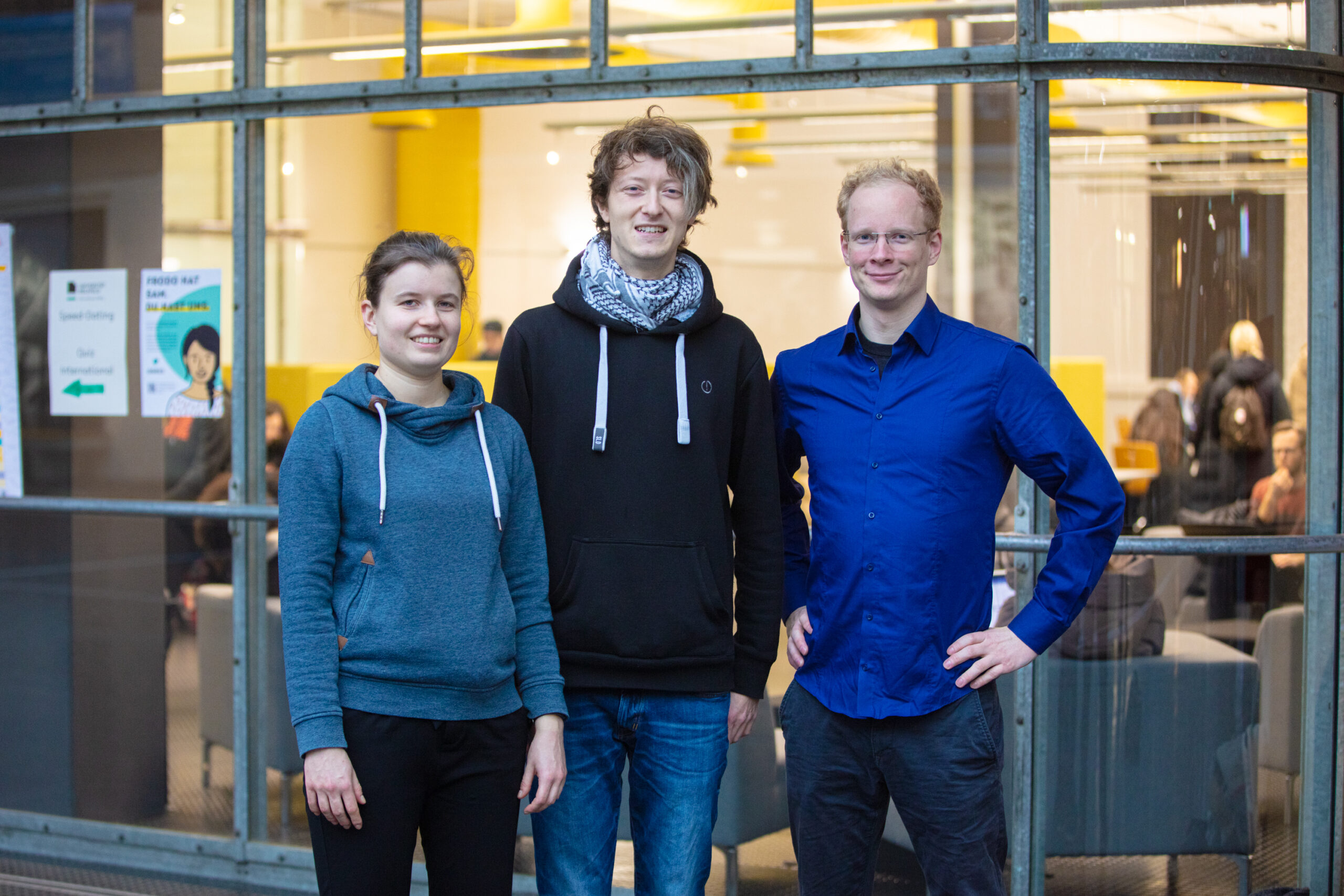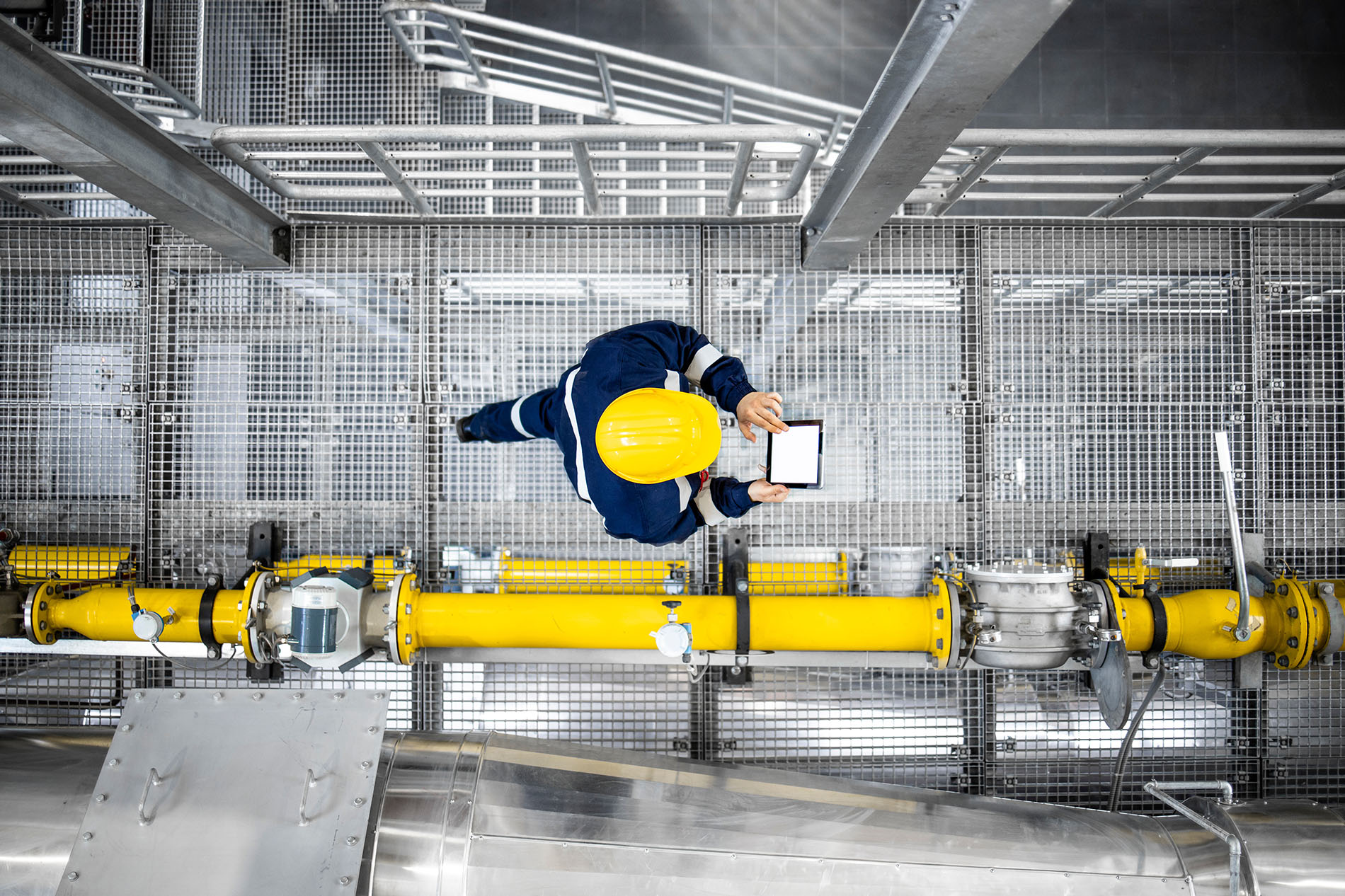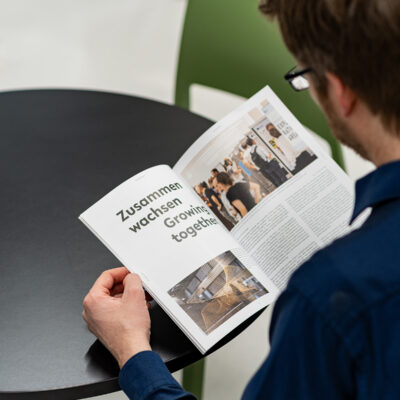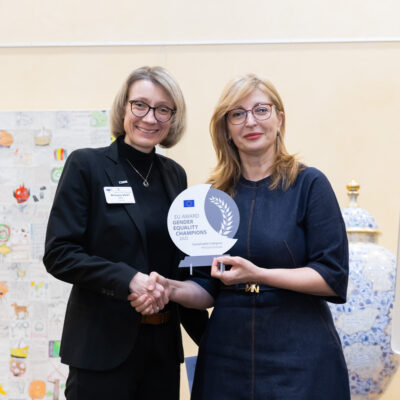Having electricity available for sudden high energy consumption is expensive for companies. Doctoral students from Bielefeld want to solve the problem with the help of artificial intelligence (AI).
For many manufacturing companies, so – called load peaks – suddenly occurring phases of high energy consumption – have not just become a financial burden through the energy crisis. The reason is that these sudden events place a particularly heavy load on the grid infrastructure, and energy suppliers charge a high price for managing such load peaks. Three Bielefeld PhD students, Sarah Schröder, Luca Hermes, and Philip Kenneweg, want to control such sudden increases in energy consumption better in the future – and, if possible, even prevent them. Artificial intelligence should help. The idea was born at the Makeathon of the technology network ‘it’s OWL’.

© Mike-Dennis Müller
Phillip Kenneweg got the project rolling. ‘I heard that this Makeathon was being held, and I always thought that was a cool concept,’ says the scientist, who is working on his doctorate in the Machine Learning Group at the Faculty of Technology. ‘I then asked around in the research group and found Luca and Sarah, who also wanted to take part.’
The concept of a Makeathon is for interested people to dedicate themselves to a specific problem for a set time and to try to develop solutions. In this specific case, participants analysed data sets given to them by companies from OWL.
‘We chose energy consumption data from the companies Hesse Mechatronics and Weidmüller. It was all about ideas on how they could save energy. That’s where our energy-saving management came from,’ says Luca Hermes.
‘The basic idea is not to get rid of these load peaks, but to predict them with the help of AI,’ Kenneweg explains. ‘If you know when the load peaks are coming, you can take measures to shred loads and reduce energy consumption.’ What those measures are depends on the company. For example, you could shut down other production areas or pause the air conditioning systems. ‘In the best case, this will enable you to prevent peak loads.
The three doctoral students won first prize with their concept, and they could now use the prize money of 10,000 euros to start exploring how best to proceed. Through ties with the ‘Machine Learning’ research group, the plan is to create a network with other interested companies. ‘The idea is to promote the concept here so that it can serve as a basis for founding a start-up,’ says Sarah Schröder. The project is now going to receive up to one million euros in funding from the ‘it’s OWL’ network.





